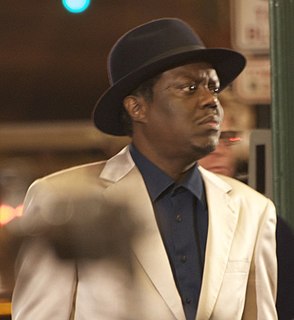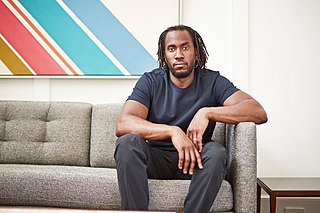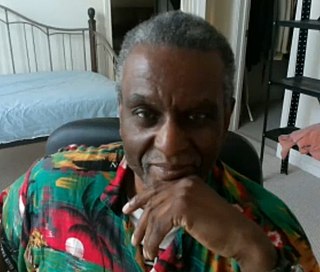A Quote by Cheo Hodari Coker
All black art, post-slavery, has always tried to prove in its own way that a black life is the equivalent of anyone else's.
Related Quotes
I come from a real working class background, and I didn't know anyone sophisticated - except I saw Edie Sedgewick once at the Art Museum in Philly. She had these black leotards and little black pumps and this big ermine cape and all these white dogs and black sunglasses and black eyes. She was classy!
There isn't only one way that black art or entertainment is represented, and that's the most important thing. We're permeating every style. We're claiming and, when necessary, appropriating all kinds of forms. Nothing is forbidden, because it's not what black people do: because it's not what we think of as black art.
Black History is enjoying the life of our ancestors who paved the way for every African-American. No matter what color you are, the history of Blacks affected everyone; that's why we should cherish and respect Black history. Black history changed America and is continuing to change and shape our country. Black history is about everyone coming together to better themselves and America. Black history is being comfortable in your own skin no matter what color you are. Black history makes me proud of where I came from and where I am going in life.
The breakdown of the black community, in order to maintain slavery, began with the breakdown of the black family. Men and women were not legally allowed to get married because you couldn't have that kind of love. It might get in the way of the economics of slavery. Your children could be taken from you and literally sold down the river.
In the era of slavery, you could be a so-called Afro-Cuban one day and a so-called Black American the next day, or vice versa. I mean there was all this back and forth, and there was a lot of opposition in Black America to slavery in Cuba in particular, because slavery in Cuba lasted until the 1880s.
Back when we was in school in Mississippi, we had Little Black Sambo. That's what you learned: Anytime something was not good, or anytime something was bad in some kinda way, it had to be called black. Like, you had Black Monday, Black Friday, black sheep... Of course, everything else, all the good stuff, is white. White Christmas and such.
In every art we are always obliged to return to the accepted means of expression, the conventional language of the art. What is a black-and-white drawing but a convention to which the beholder has become so accustomed that with his mind's eye he sees a complete equivalent in the translation from nature?
The true story is that black people need to tell their history. Very few films are made by black people about slavery. That itself is a crime because slavery is a very important historical event that has held our people hostage. Forget white people's role in it. In the end what's important is black people remain and live with the scars and psychological issues.

































